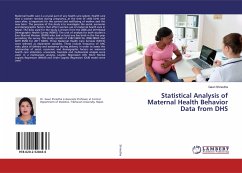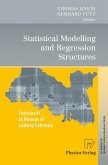Maternal health care is a crucial part of any health care system. Health care that a woman receives during pregnancy, at the time of child birth and soon after, is important for the survival and well-being of mother and the new born. The purpose of this study is to investigate the social, economic and demographic factors that affect women use of maternal health care in Nepal. The data used for the study is chosen from the 2006 and 2011Nepal Demographic Health Survey (NDHS). The unit of analysis for both studies is Ever Married Women (EMW) who had at least one live birth in the five year preceding the survey. This study consists of 4182 EMW for 2006 NDHS and 4079 EMW for 2011 NDHS. Three Maternal Health Care Services (MHCS) were selected as dependent variables. These include frequency of ANC visits, place of delivery and assistance during delivery. In order to assess the relationship of social, economic and demographic factors on maternal health care utilization, univariate, bivariate and multivariate analysis were used. In a multivariate analysis, Logistic Regression (LR), Multi Nomial Logistic Regression (MNLR) and Order Logistic Regression (OLR) model were used.








